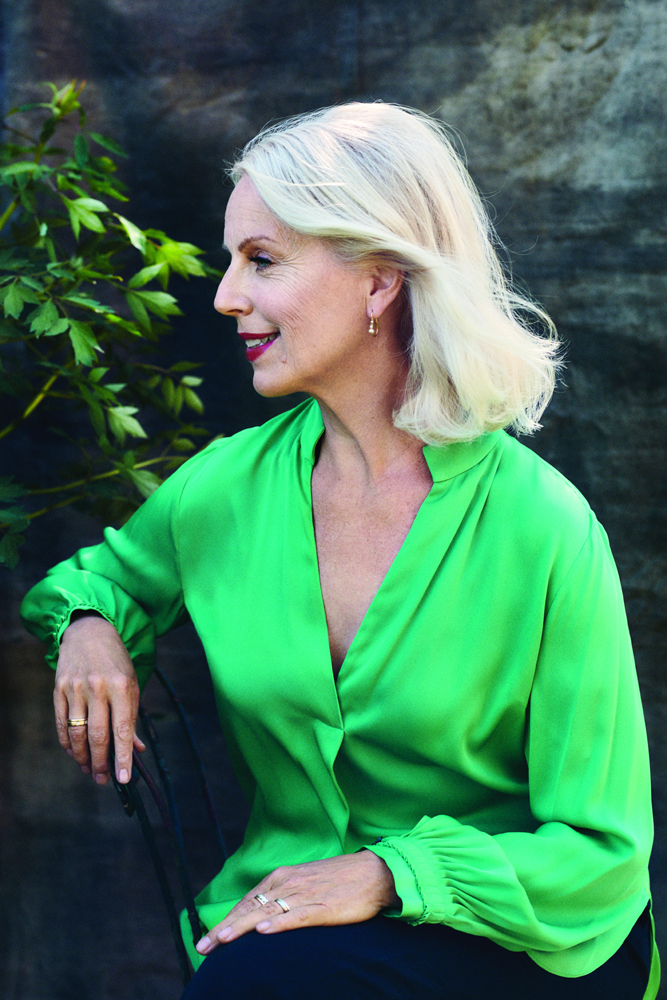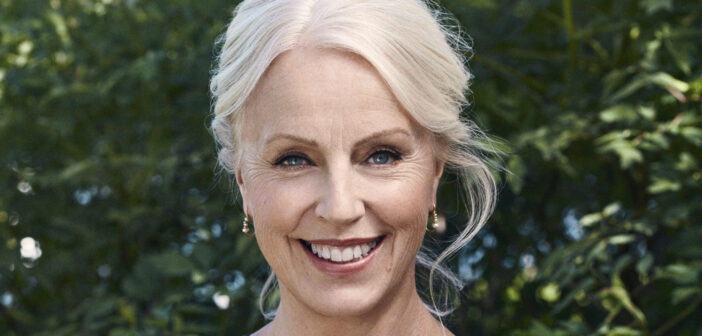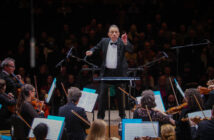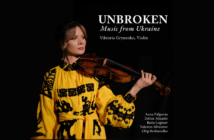
This page is also available in / Cette page est également disponible en:
![]() Francais (French)
Francais (French)
Anne Sofie von Otter needs no introduction. Throughout her nearly four-decade long career, she has taken to the stage in opera, concert and recital performances in every corner of the world, and has made what feel to be countless definitive recordings.
A Career for the Ages
The Swedish mezzo-soprano’s career started in her native Stockholm, where she studied before attending the Guildhall School of Music and Drama, in London, England. In a 2005 interview with The Guardian, von Otter confesses that she came to operatic repertoire somewhat late. It was not until she was in her mid-20s, while at the Guildhall School studying with Vera Rózsa, that she started to learn opera roles.

Beyond her robust catalogue of work on stage (both in opera and concert singing), off the operatic stage von Otter has recorded all of the Mozart and Strauss roles “suitable for her voice” as part of the exclusive deal she signed early on in her career with Deutsche Grammophon. That long-term relationship proved exceptionally fruitful, cementing her place among the most recorded artists of her generation. In recent years, she has enjoyed a relationship with Naïve Classique, with whom she has released her double album, Douce France. The 2015 release earned her the Grammy Award for Best Classical Solo Vocal Album.
Sustained by Curiosity
Perhaps the most striking attribute of von Otter’s professional life thus far is that she has not let herself be limited to traditional repertoire choices, collaborations or performance configurations. As a well-established classical vocalist, in high international demand, she could have stuck in her lane, performing works audiences know and love, and programming recitals according to convention and audience expectation.
Instead, von Otter has chosen to do things her own way. Impressively, she doesn’t find this challenging. “The promoters sometimes need to come round to the idea,” she says. “They are afraid their audience will mind.” When she first started taking this approach to programming her concerts and collaborations, it was surprising to some. “However, the mixing of repertoire is becoming much more common nowadays. Joyce DiDonato does it; Renée Fleming does it; Thomas Hampson, too, on occasion. If the music is good and we enjoy singing it, then take-off-the-labels-and-go-ahead is my motto.”
Von Otter wants to give audiences some credit: “I like to think that the audience enjoys the variety in a program that goes from Monteverdi to Paul McCartney, or from Schubert and Schumann to Swedish folk music and Kurt Weill. The regular recital audience is often delighted to hear something different—(they might not) expect a song by Benny Andersson or Sting to appeal to them so strongly. I have sung purely classical lieder recitals and ended with an encore by Benny Andersson, and (then) that’s the song I will get particular thanks for afterwards.”
She has acted as a leading force in the slow, steady reconsideration of what classical music is, how it should be presented, and who it is for. “I think classical music in general is opening up to many other influences these days, and not a moment too soon,” she says. Audiences are now invited to see and hear “contemporary programming, (…) semi-staged concerts, (…) jazz and music from other cultures” paired with classical repertoire. “Look at the eclectic mix in Yo-Yo Ma’s Silk Road ensemble for instance,” she continues, “Opera houses are also—finally—changing, and airing out the cupboards a bit, (bringing in) new works and influences, and having enormous success with—for instance—John Adam’s operas.”
This openness to new musical experiences is what led to her famed recording project with Elvis Costello, titled For the Stars, as well as collaborations with Canada’s own Rufus Wainwright, whose music she has performed on tour alongside repertoire by Schubert, in a concert titled Songs of Love and Death.
Bringing Swedish Folk Music to Lanaudière
It is in this same spirit of creativity and versatility that she will perform not once, but twice, at this year’s 47th annual Festival de Lanaudière, in Quebec. Her first recital will take inspiration from her Grammy Award-winning double album, Douce France. Exerpts from the first disc, which consisted of “classical French mélodies by Hahn, Saint-Saëns, Ravel and Debussy,” will be combined with selections from the second, which includes “French chansons from the middle of the last century, by Charles Trenet, Barbara, Kosma and others.” She is “super excited to be invited to Lanaudière to sing the chansons at the festival’s outdoor auditorium!”
Her second recital at Lanaudière, titled Von Otter Folklorique, will be a part of the festival’s Hors le murs series. “We will do a bunch of Swedish folk-music pieces, plus some pop and a few surprises,” she hints. “I am bringing two of Sweden’s best folk musicians: the accordionist Bengan Janson and the violinist Anders Jacobsson. I promise you they can play up a storm!”
Janson and Jacobsson have been a part of von Otter’s musical life for many years, she notes. “They are unique musicians and lovely people.” But her pianist for these recitals, Johan Siberg, is a new collaborator. “We first met last summer. Johan is one of those unusual people who can play classical music and is completely at home with jazz, pop and other styles. He is easy to work with, and quick as they come in grasping the music.” Rounding out the group will be as close an acquaintance as they come: her son, Fabian Fredriksson, will play guitar.

Breaking down recital performance
These performances will, of course, be very different than the operatic settings in which von Otter often appears. As she sees it, “being on stage in an opera and singing a concert, as (I will) in Lanaudière are two completely different things.” She adds: “Opera is a piece with a developing story, music by only one composer. There are weeks of rehearsals and of laying the puzzle as it were. There’s scenery. Wigs and makeup. Costumes. Lighting. It’s theatre, and it’s collaborative.”
In a recital, she is in the driver’s seat. “I make almost all the decisions. I choose my fellow musicians, I decide what kind of program (to sing), what to wear, (and so on). And I face the audience from beginning to end.” She describes this as “an exciting and slightly scary challenge that can be very gratifying, but is also a big responsibility.”
It is a responsibility that von Otter takes quite seriously, which is reflected in her dynamic, ambitious programming. “I spend ages and ages when putting together a recital program,” she admits. “It’s quite hard actually—I want it to fulfil lots of parameters.” She aims to craft concerts that are “the right length, which is harder than it sounds! With a lot of variation in moods and styles; beautiful songs, coarser, tougher songs; light and shadow; happy and sad.” She confesses that she is aware of “how easy it is to be bored in a theatre or concert house. I want my audience to go out wanting more, to come back another time, to reminisce and retain some of the music and moods in their hearts.”
A Return to Canada
It hasn’t been very long since von Otter last appeared in Canada for concert performances. She recalls her most recent Canadian tour, in May 2022, with German pianist Christoph Berner, with whom she performed a program that focused on music by Schubert. “I celebrated my birthday at a lovely restaurant in Halifax, which was our first stop. We were also in Kingston, Toronto and Ottawa. I loved seeing Canada in the spring.” Even more recently, she “visited for a one-off with Kristian Bezuidenhout in Toronto in the fantastic Koerner Hall.”
Her very first visit to Canada took place in the 1990s, when she performed what she describes as a “crazy baroque concert with Reinhard Goebel and his Musica Antiqua Köln. She then returned some years later, this time to Vancouver, in the spring of 1995—“a vivid and wonderful memory”—and to Montreal, with Brad Mehldau, on “a freezing cold winter’s day maybe 10 years ago, as the city lay deep frozen under old grey snow and ice.”

“I always look forward to coming back to Canada,” she reflects, describing it as “a friendly country where I feel at home because it reminds me of my own part of the world, Scandinavia.” Although this will be her first performance as part of the Lanaudière festival, she is sure she will enjoy the occasion. “The Lanaudière festival seems very lively and fun,” von Otter says. “Being invited to come for my French chanson program with my Swedish friends on piano, guitar, violin and accordion is a big pleasure.”
Audiences for whom a trip to Lanaudière is not a possibility this summer need not worry, however. Von Otter admits that she already has her sights set on an imminent return to North America. “My manager is currently working on a tour of the U.S. and Canada for me and Kristian Bezuidenhout, a dear friend and an absolutely wonderful pianist,” she says. “We will be performing songs and piano pieces from Schubert’s last years. Schubert is a composer I have come to love and admire increasingly; there is so much to discover and to delve into—what a gift to all of us who love music.”
The voice of a generation
It is so clear that a deep love of and commitment to musical expression is what has guided von Otter throughout her career up until this point. This love has allowed her to adapt to changing cultural climates and musical tastes, to explore every corner of her instrument, and to remain committed to putting her focus toward projects that are of genuine interest to her. All of this, she says, comes down to a few simple principles. It is about “working hard and not giving up”—about “living, learning, listening, and looking around you.”
The Festival de Lanaudière runs from July 6 to Aug. 4.
Anne Sofie von Otter will perform Von Otter Folkloric on July 25 at 7:30 p.m., and Douce France on July 27 at 4p.m. www.lanaudiere.org
This page is also available in / Cette page est également disponible en:
![]() Francais (French)
Francais (French)
















